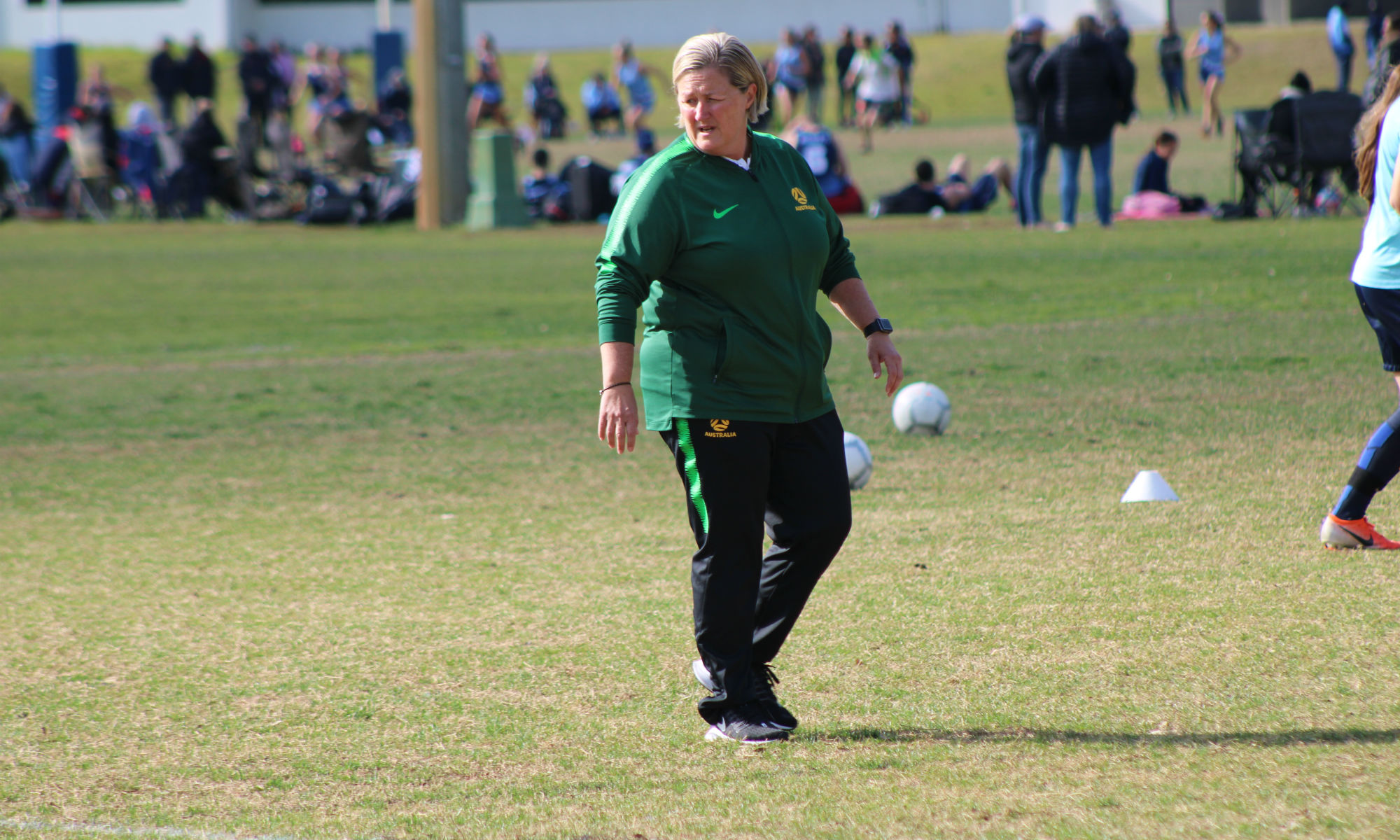The Westfield Junior Matildas will embark on a 12-day tour of three Pacific nations next week as part of the government-funded 'Pacific Step-Up' program.
From August 5 – 16, the team will travel to Tonga, Vanuatu, and the Solomon Islands to play a series of friendlies against the U-19 Women’s National Team of each nation, while also conducting a series of clinics, workshops, and cultural activities that will help to strengthen the ties between the Australian and Pacific football communities.
NEWS: Australia reaffirms interest to host expanded FIFA Women’s World Cup 2023
ON TOUR: Westfield Junior Matildas set for 2019 Pacific Step-Up Tour
It’s a tour that Junior Matildas head coach Rae Dower, who has spent the last few weeks travelling around Australia scouting players, is particularly excited about.
Earlier this year, Dower was part of a small delegation from Football Federation Australia who toured through three cities in India, promoting football as a vehicle for social change, particularly among girls and women.
“We’re trying to build the next generation of our Matildas to be leaders in their communities.”
“Myself, Emma Checker [Adelaide United W-League captain], and Kieran Lilley [International Relations Manager at FFA] worked with a number of NGOs in and around a couple of different cities in India — New Delhi, Goa, and Kolkata — to promote football as a viable option for young girls to take up and play, the social benefits of that in terms of making life-long friendships, learning team-work, discipline, leadership and hard work. All those great qualities that our sport can bring,” Dower said.
“We found that it’s mutually beneficial for us in terms of spreading that message to young girls and women about having a healthy lifestyle and how it can build the consciousness in the rest of the community that women do play prominent roles on the sporting field as athletes, as players themselves, coaches, administrators, and referees.”
“Football is a sport that, if it gets in your blood nice and early, it hooks you for life, and the life-long benefits of having a team sport like football—the wonderful skills you can take and transfer to other parts of your life—that will be the message that we’ll be promoting to the Pacific region.”

Promoting the benefits and values of football is one of many aspects of the upcoming tour that Dower is looking forward to.
Not only will the tour provide the squad with more experience in a tournament-like setting in preparation for the AFC U-16 Women’s Championships in Thailand this coming September, but it will also expose the players to different cultures, situations, and environments that will challenge them individually and collectively.
Most importantly, perhaps, Dower hopes that the tour spreads the love of football that she’s had since she was a child.
“I fell in love with football as a six-year old and now to be working in the game…it’s a privilege as I never feel like it’s work because it’s my passion,” she said.
“I want to spread that love around Australia and around the world and promote this beautiful game.
“We know there’s only a small percentage of players who will make it to the top of the game as an athlete, but if they can fall in love with the game and contribute to the game as a fan, a referee, a coach, or an administrator — if they can fall in love and stay involved in the game 43 years on like I have — that’s very rewarding.
“But the number one thing I try to impress upon the players is that I want to be able to help them live out their dreams and goals as athletes, but at the end of the day what’s most rewarding for me is if I can help them to be outstanding young women in their community and to be good people.
“There’s a very big focus on the holistic education of players both on and off the field, and to me that’s the most rewarding thing. We’re trying to build the capacity of our next generation Matildas to be leaders in their communities.”
A partnership with the Pacific
When Australia relocated from the Oceania Football Confederation (OFC) to the Asian Football Confederation in 2006, Australia’s involvement in competitive matches in the Pacific reduced. While Football Federation Australia still works with OFC on development programs, this will be the first Australian national football team to visit the Pacific in almost 15 years—around the same age as some of the current Junior Matildas players.
It won’t be the first time that the team has travelled abroad, though. They’ve already been to Kyrgyzstan and Laos en route to qualification for the upcoming AFC tournament, where some players learned the hard way about living the life of an international footballer.
“In terms of challenges, the creature comforts that the young players are used to, like having Wi-Fi on hand and eating their favourite foods, these are some of the shocks that some of the players have had to address,” Dower said.
“They don’t have the ability to call home and speak to their parents as often as they’d maybe like.
“For some of them, it’s only the first or second time they’ve ever been away from home, and being away from home for a couple of weeks can bring about a bit of homesickness. So that’s part of the learning and part of the holistic education experience for players.
“Building that resilience around the group in terms of it being different from what they’re used to means people have to be adaptable and flexible.
“Those are two words our team readily use and that are very prominent in the vocabulary of our young players, and that’s part of what we want in terms of building their resistance to things outside of their control.”
Ultimately, Dower hopes that the players relish the opportunity to learn about the various challenges that women footballers can face around the world, and aim to ‘pay it forward’ in their own communities.
“For some countries, women’s football is only starting its journey whereas here in Australia we have a proud history in the women’s game and an established player pathway.”
“It’s important to remember though where we’ve come from, and our humble beginnings. Some of our team values revolve around humility and gratitude and it’s something we want our players to have a sense of – how hard countries in the Pacific region are working to realise their own football dreams and potential.
“It also provides perspective and a greater appreciation for how our players got to be where they are. Simple things like appreciating the time and effort their parents or extended family and friends have put in to take them to all their training sessions, matches or to help financially to help them live and follow their dreams.
“I think that really helps to build well-rounded individuals, and you’d like for them to take that experience and that aspect back to their own teams and help to spread that attitude.
“Once again, if we can help our girls to be great young female leaders in their own communities, whether that’s back at school, back at their club, in their own teams, that’s a major focus of what we’re looking to achieve.
“The football and training to prepare to qualify for a World Cup later in September is a great by-product of all these other cultural benefits and experiences.
“They’re good people working together as a team, understanding adversity and working hard to find solutions to those problems, helping them to change and adapt on the field. That will also help to develop them into good footballers.”
